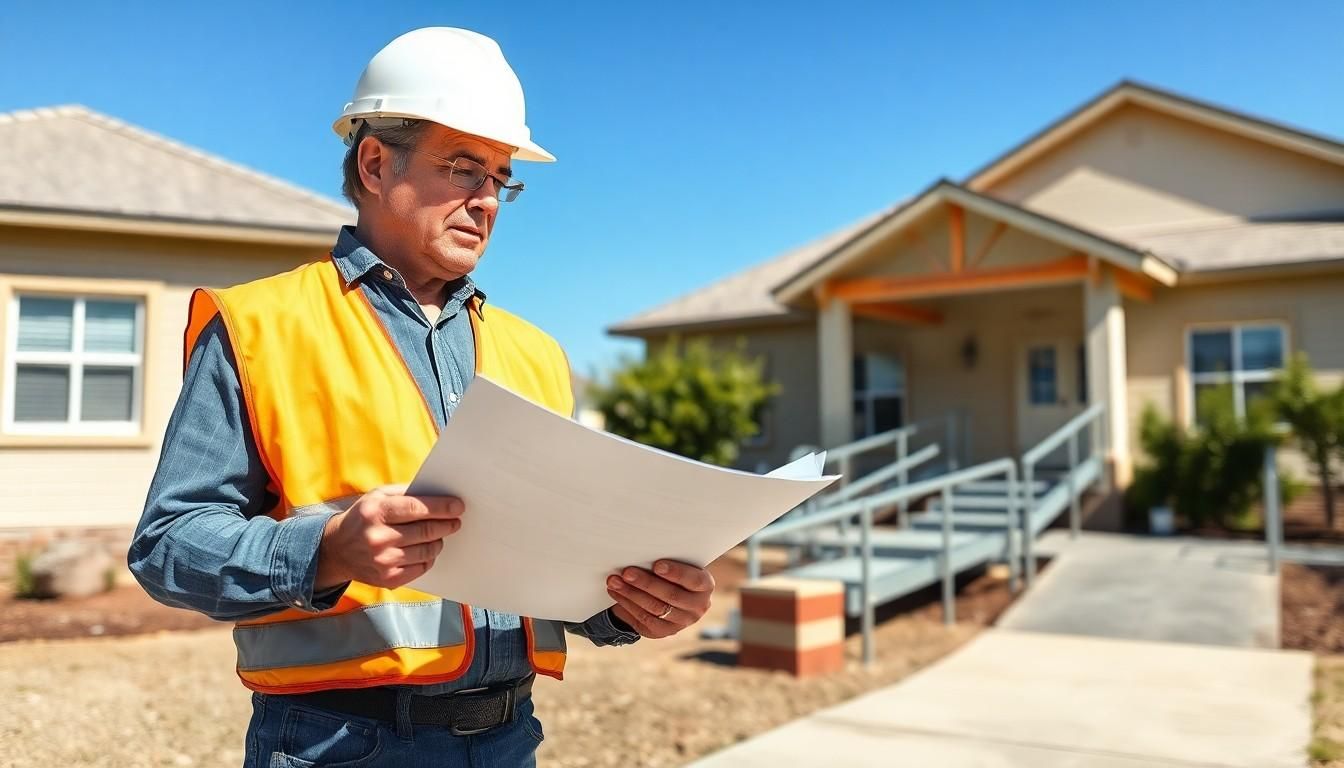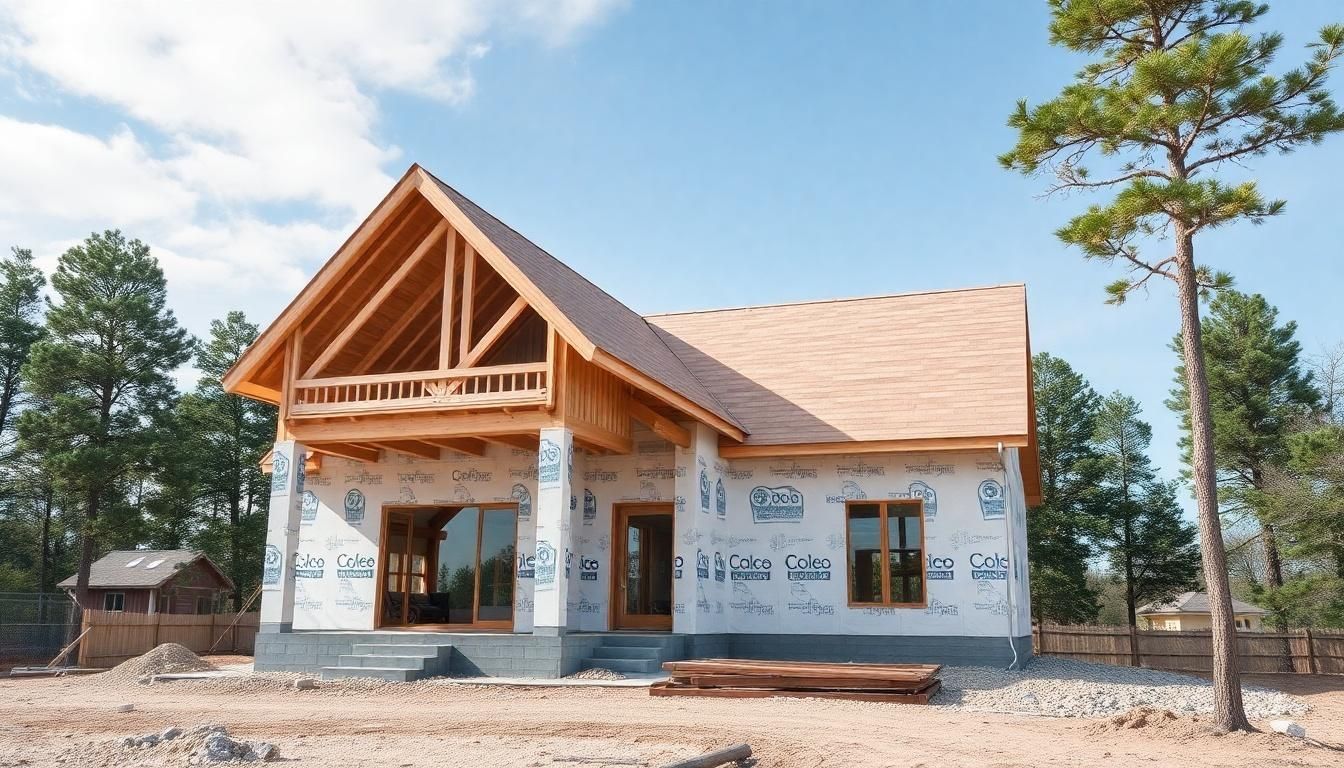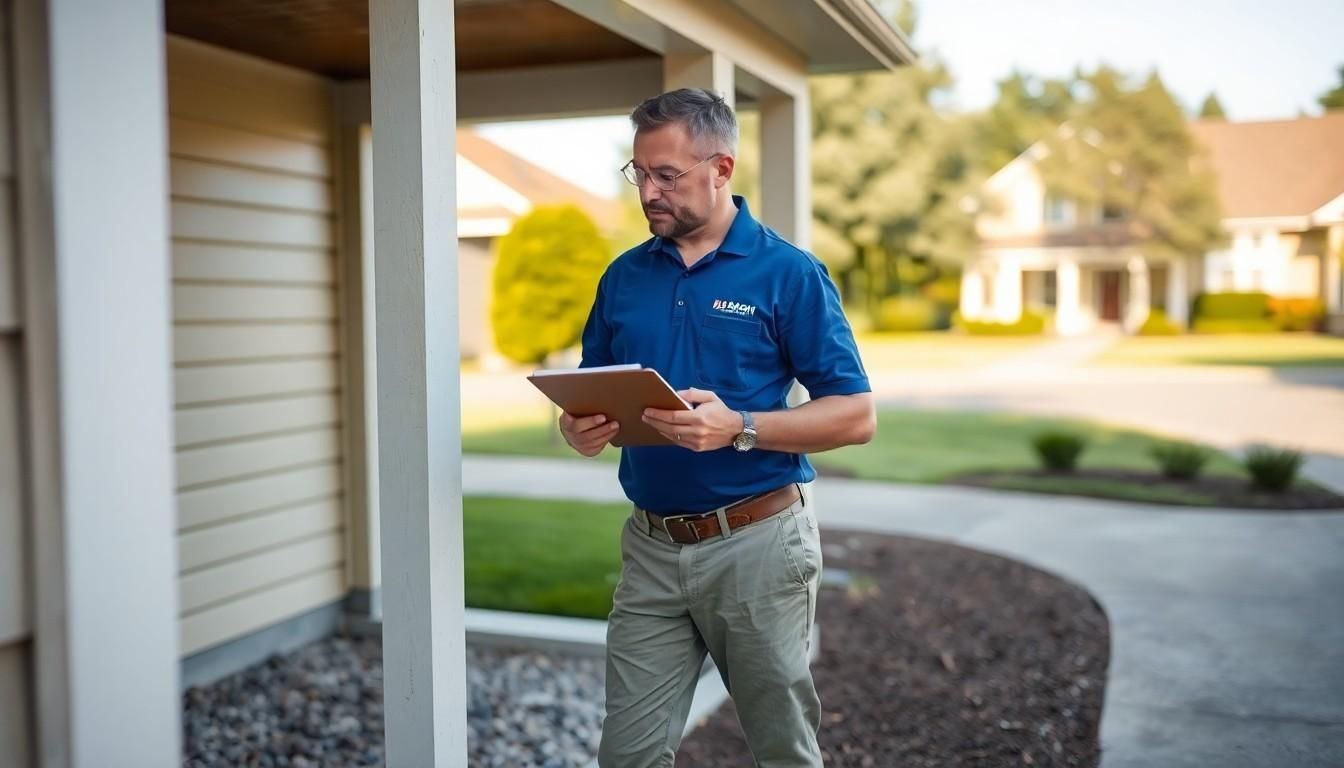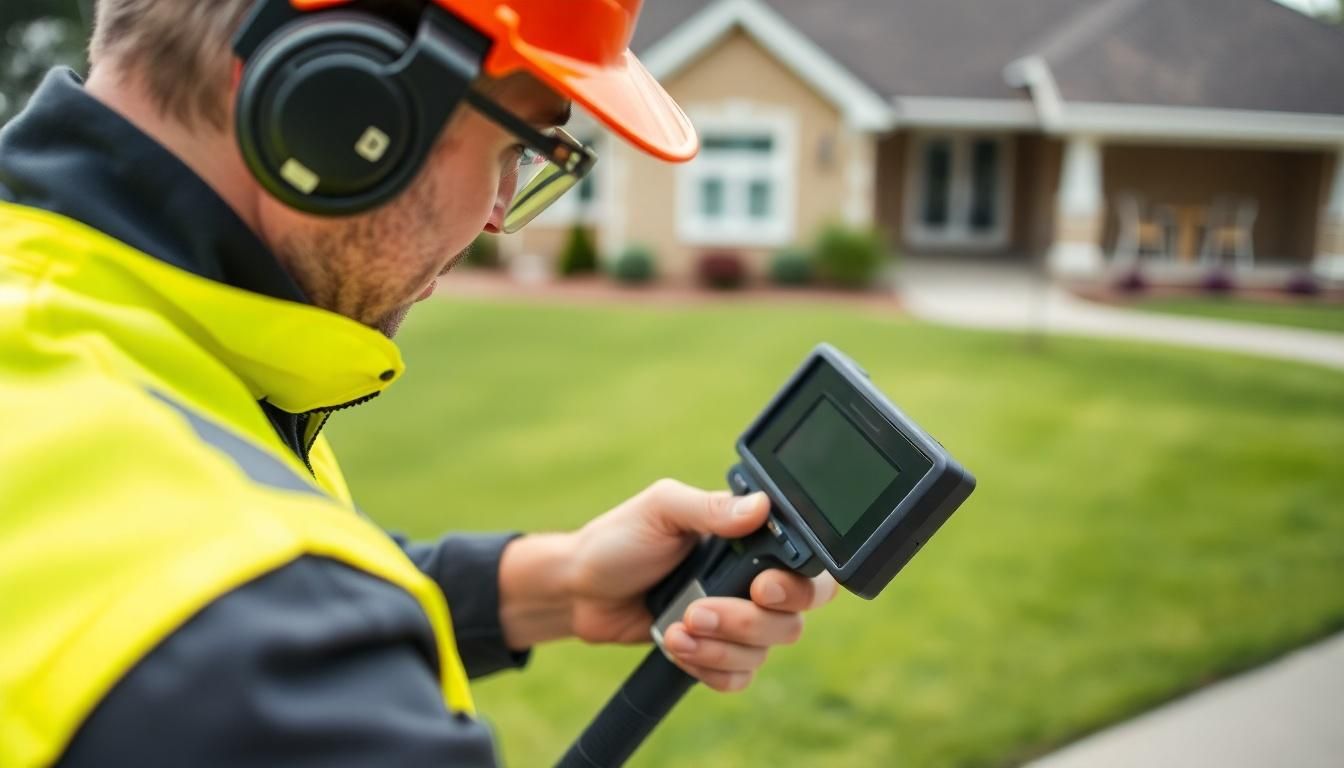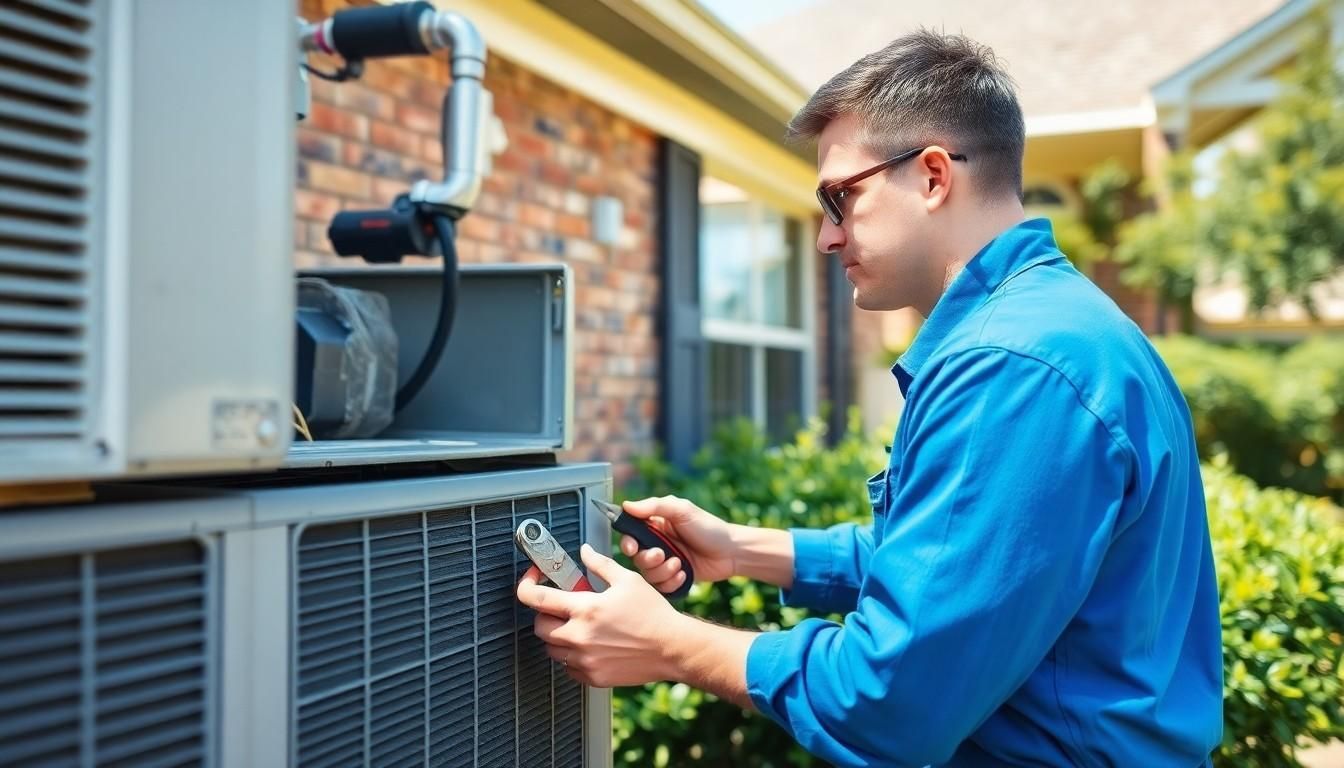What Qualifications and Certifications of a Home Inspector Should You Look Out For?
Navigating the world of home inspections can be daunting for many homeowners. They often face frustrations stemming from unclear evaluations, unexpected issues, and the overwhelming amount of information. With so much at stake, understanding the qualifications and certifications of a home inspector becomes essential for ensuring a smooth and stress-free experience.
Accurate Home and Commercial Services stands out by providing reliable and thorough inspections that homeowners can trust. Our team of certified professionals is dedicated to delivering accurate assessments, allowing clients to make informed decisions about their properties. By prioritizing transparency and expertise, we help alleviate the common anxieties associated with property evaluations, making the process as seamless as possible.
Overview of Home Inspection
Home inspections serve as a critical step for both buyers and sellers in real estate transactions. They provide a detailed evaluation of a property's condition, highlighting issues such as structural damage, roofing problems, and electrical system concerns. Home inspections in Greater Houston offer reassurance by delivering reports that inform decision-making.
Certified home inspectors possess specialized training and experience, enabling them to conduct thorough assessments. Qualifications often include completion of courses covering building codes, safety practices, and system functionalities. Certifications from recognized organizations, such as the International Association of Certified Home Inspectors (InterNACHI) or the American Society of Home Inspectors (ASHI), indicate adherence to industry standards.
Home inspectors utilize advanced tools, such as moisture meters and thermal imaging cameras, to detect hidden defects. Inspectors document findings in detailed reports that include photographs and descriptions of issues, facilitating transparency for clients. These assessments help mitigate risks and establish trust between buyers and sellers.
Importance of Qualifications and Certifications
Qualifications and certifications enhance the reliability of home inspectors, ensuring clients receive accurate assessments. Home inspectors with proper credentials demonstrate expertise in industry standards and building codes, fostering trust among homeowners and realtors.
Legal Requirements
Legal requirements for home inspectors vary by state, but most jurisdictions mandate licensing. Licensing ensures that inspectors have met specific educational and experience criteria, providing assurance of their competency. Some states require ongoing education to keep inspectors updated on changing laws and regulations. Being licensed contributes to the inspector's credibility and assures clients that they adhere to local legal standards. Homeowners can confirm an inspector's license status through state regulatory agencies, ensuring compliance and professionalism.
Industry Standards
Industry standards set the foundation for quality inspections. Organizations such as the American Society of Home Inspectors (ASHI) establish guidelines that certified inspectors follow, including protocols for inspecting different property systems. Industry standards also emphasize ethical practices and thorough reporting methods. Inspections conducted under these guidelines ensure uniformity and reliability, fostering confidence among clients. Certified home inspectors stay informed about the latest industry trends and technologies, enhancing their effectiveness in detecting potential issues during assessments.
Types of Qualifications
Understanding the qualifications of home inspectors involves recognizing key components that contribute to their expertise and reliability.
Educational Background
Educational background typically includes formal training in building sciences or related fields. Many inspectors complete programs from accredited institutions, covering essential topics like structural systems, plumbing, and electrical systems.
A degree or certification from programs recognized by bodies such as the American Society of Home Inspectors (ASHI) enhances credibility. Some inspectors also pursue continuing education courses to stay updated on industry trends and regulations. Training ensures familiarity with local building codes, safety practices, and ethical standards vital for quality inspections.
Relevant Experience
Relevant experience is crucial in assessing a home inspector's qualifications. Inspectors often gain hands-on experience through apprenticeships or working under seasoned professionals in the field. It's common for inspectors to participate in hundreds of inspections before establishing their practice. This real-world exposure helps them identify potential issues more effectively.
Previous work in construction, real estate, or engineering can be beneficial, as it allows inspectors to understand building systems comprehensively. The combination of education and experience ensures inspectors can provide thorough, accurate assessments that clients depend on during real estate transactions.
Certifications Available
Certifications provide assurance of a home inspector's qualifications, enhancing their credibility. Home inspectors can obtain various certifications at national and state levels, ensuring they meet the industry's standards.
National Certifications
National certifications reflect a home inspector's expertise and adherence to best practices. Organizations like the American Society of Home Inspectors (ASHI) and the National Association of Home Inspectors (NAHI) offer credible certifications. Inspectors complete rigorous training programs and examinations to achieve these certifications, establishing their proficiency in essential home inspection areas.
These certifications require ongoing education to maintain compliance, ensuring inspectors stay updated with the latest building codes and inspection techniques.
State-Specific Certifications
State-specific certifications address regional regulations and standards, aligning home inspectors' qualifications with local needs. Each state outlines its requirements for home inspection certifications, which often include passing exams and completing approved training programs. For instance, in Texas, inspectors must meet specific educational criteria and obtain a license from the Texas Real Estate Commission (TREC). State certifications enhance inspectors' knowledge of local building practices, laws, and climate considerations, ensuring reliable service tailored to the community's needs.
Accurate Home and Commercial Services offers certified home inspections, ensuring clients receive dependable evaluations in Greater Houston.
Continuing Education and Professional Development
Continuing education ensures home inspectors remain current in their field. Many states mandate ongoing training to maintain licensure. Regular courses expand knowledge about updated building codes, safety practices, and emerging technologies.
Professional development opportunities enhance skills and expertise. Attending industry conferences connects inspectors with peers and experts, providing insights into best practices and trends. Online training modules offer flexibility, allowing inspectors to learn at their own pace while balancing work commitments.
Membership in professional organizations, such as the American Society of Home Inspectors (ASHI), supports continuous learning. These organizations often provide access to workshops, certifications, and peer networking. Inspectors enhance their qualifications and credibility by participating in these activities.
Home inspectors benefit from specialized training in various areas. Certification courses cover specific topics, such as radon testing or pest inspections, expanding service offerings. Mastering diverse skills helps inspectors cater to client needs more effectively.
Conclusion
Understanding the qualifications and certifications of home inspectors is vital for a successful real estate transaction. Certified inspectors bring a wealth of knowledge and experience that helps homeowners navigate the complexities of property evaluations. Their adherence to industry standards and ongoing education ensures that clients receive accurate assessments.
Choosing a qualified inspector not only builds trust but also empowers clients to make informed decisions. With the right expertise, home inspectors can identify potential issues that might otherwise go unnoticed. This proactive approach ultimately leads to smoother transactions and greater peace of mind for both buyers and sellers in the Greater Houston area.
Frequently Asked Questions
Why is it important to understand home inspector qualifications?
Understanding home inspector qualifications ensures you decide a certified professional who adheres to industry standards. This knowledge fosters trust, helps identify potential problems, and leads to a more reliable evaluation of the property.
How do certified home inspectors contribute to the inspection process?
Certified home inspectors use advanced tools and comprehensive training to identify hidden defects. Their expertise allows for thorough evaluations, ensuring that both buyers and sellers receive accurate, detailed reports about a property's condition.
How do certifications enhance a home inspector's credibility?
Certifications from respected organizations, like ASHI or NAHI, demonstrate an inspector's commitment to best practices. They require rigorous training and ongoing education, assuring clients of the inspector’s expertise and reliability in the field.
What types of training do home inspectors typically undergo?
Home inspectors often complete formal training in building sciences from accredited institutions. This training covers structural systems, plumbing, and electrical systems, supplemented by hands-on experience through apprenticeships.
Why choose Accurate Home and Commercial Services for inspections?
Accurate Home and Commercial Services offers thorough inspections conducted by certified professionals. Our adherence to rigorous guidelines and commitment to transparency helps alleviate anxieties associated with property evaluations, making us a reliable choice in Greater Houston.

